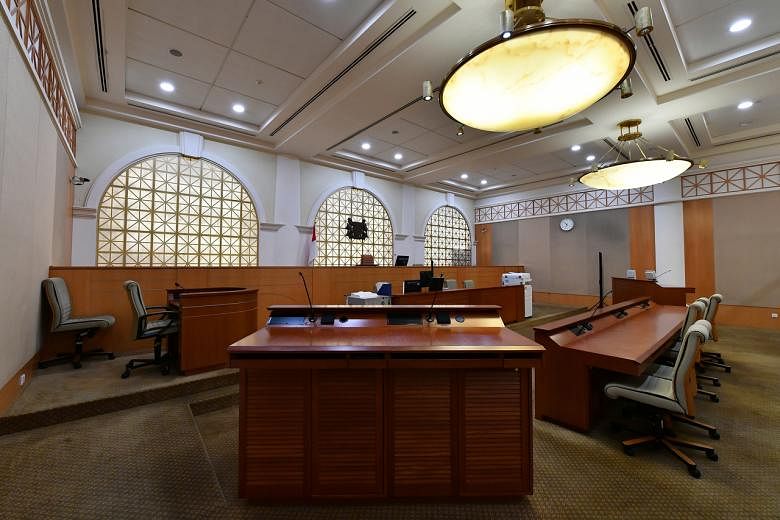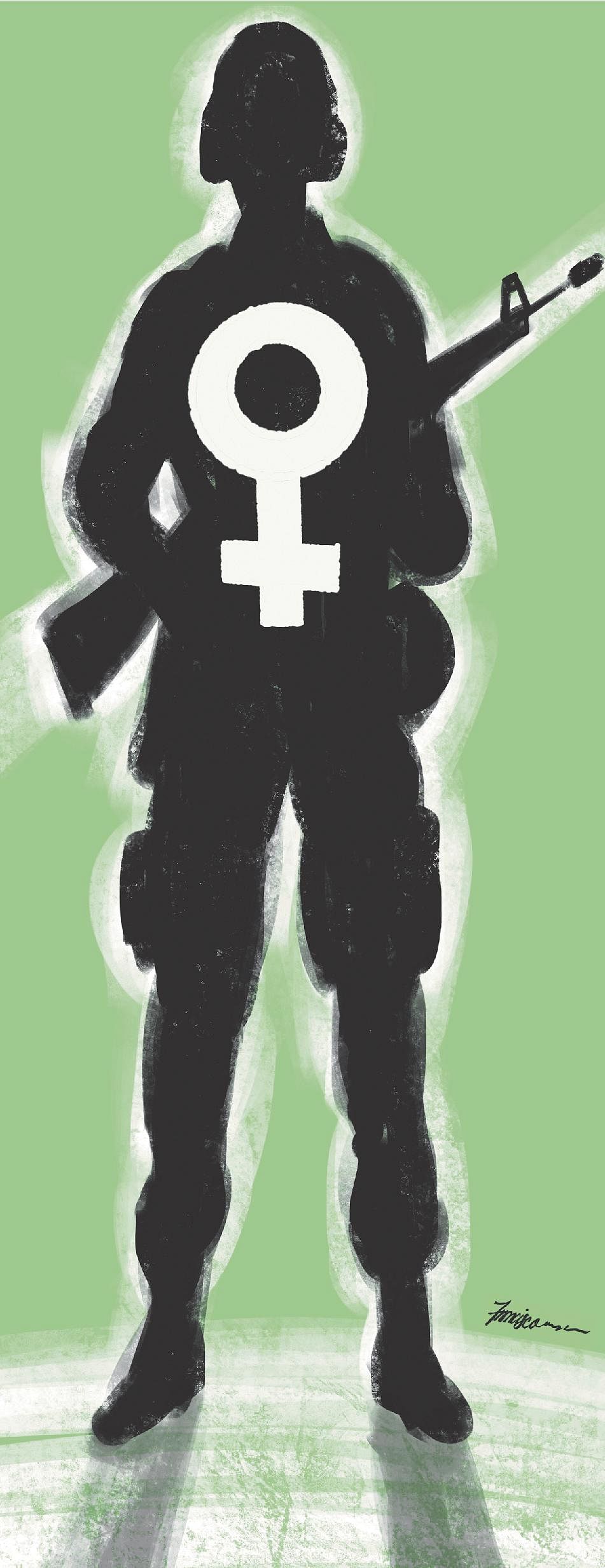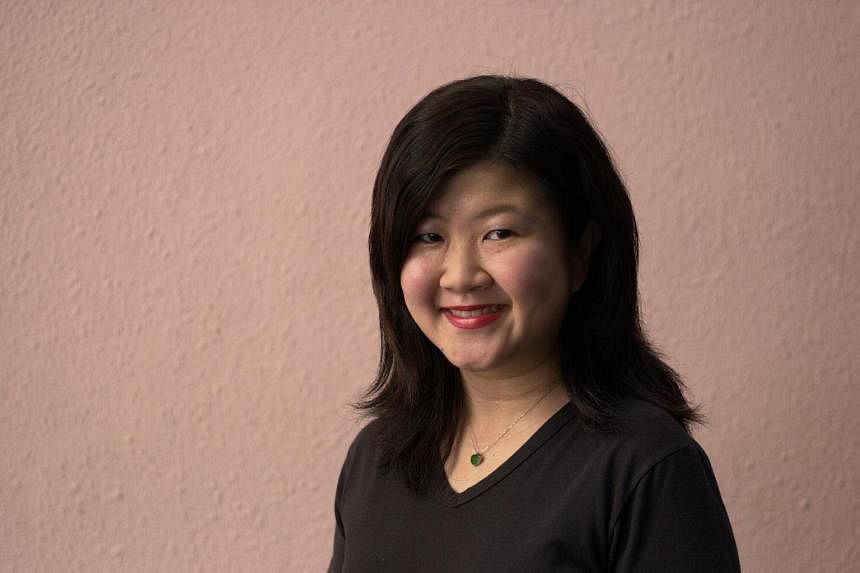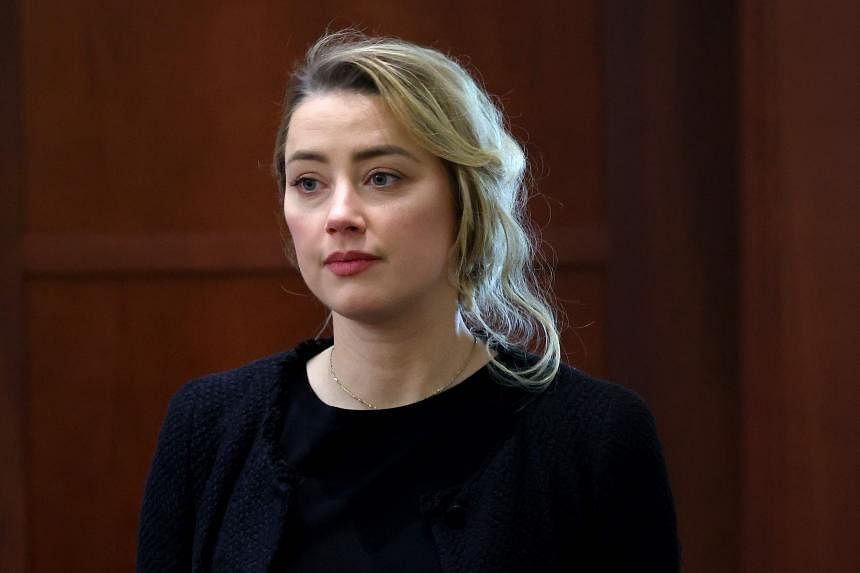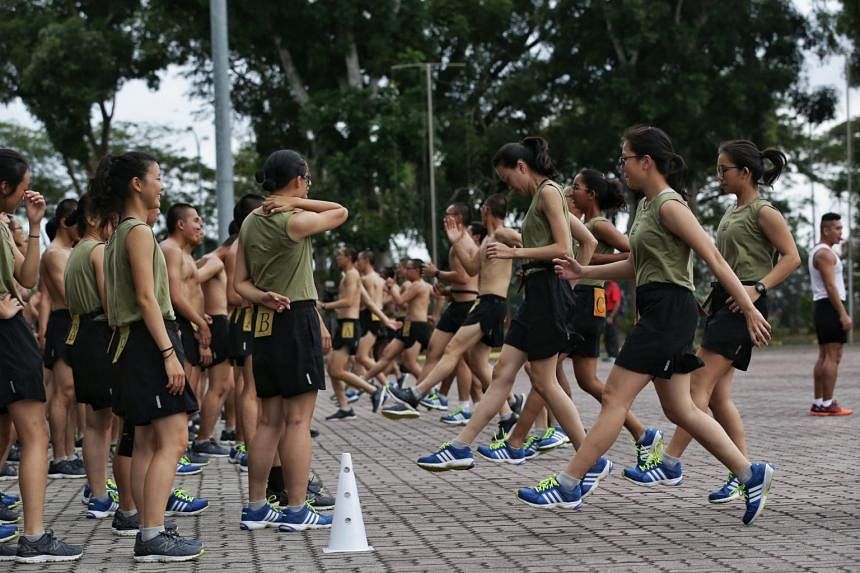Why isn't AWARE pushing for equal opportunity for women to have the privilege of doing National Service?
Time for women to serve NS and challenge outmoded gender norms
Including women in national service will not resolve all issues of gender inequality, but it will address a highly symbolic instance of it.
Kalpana Vignehsa and R Avinash
Women may in future also be required to do NS due to Singapore's declining fertility rate. PHOTO: MINDEF
Mar 24, 2022
Images of Ukrainian women
defending their homeland against Russian invaders have been shared the world over. Indeed, Ukraine has one of the highest rates of female military service in the world and its 2018 law granting servicewomen equal rights is lauded for catalysing broader gains in gender equality.
As the world watches
Ukraine mount an unexpectedly stout defence, gender equality advocates have been roused to re-evaluate the role of women in national defence. In Singapore, some may wonder if it is time for women to be equally included in our national defence framework.
Over the years, Singapore has recognised and celebrated the contributions of women to the progress of our nation. The Ministry of Social and Family Development declared 2021 as the Year of Celebrating SG Women, and the Ministry of Home Affairs announced
a comprehensive review of women's issues relating to sexual violence, voyeurism and differential treatment.
Amendments to the Women's Charter have been made to
allow couples to be jointly responsible for divorce. Gender discrimination at the workplace is under the spotlight. Gendered fault lines in our society are also being scrutinised.
Extending the national service (NS) obligation to women is hence an opportunity to further include women through our nation's defence framework, in turn allowing men and women to share more of their lived experiences and diversifying their collective skill sets. As the anthropology professor Ayse Gul Altinay writes, "given equal suffrage rights, there is no other citizenship practice that differentiates as radically between men and women as compulsory male conscription".
In her third IPS-Nathan Lecture last year, Ms Corinna Lim, executive director of the Association of Women for Action and Research (Aware),
called for extending mandatory NS to women. She also recommended expanding NS beyond the traditional domains of the army, navy, air force and police.
Singaporean women
shoulder most of our society's care work. Even when not directly doing the caring, they disproportionately bear the mental loads of running homes, raising children and caring for the elderly, in addition to gainful employment.
Gender-neutral conscription changes the narratives around what have long been considered the distinct domains of "women's work" and "men's work".
Furthermore, technology has increased the ways in which defence is enacted. The Singapore Armed Forces is slated to establish
a new Digital and Intelligence Service (DIS) by the end of this year. In time, having women in the DIS could also help rectify the gender gap in high-paying IT jobs.
If women were included and NS was expanded beyond the new DIS to include healthcare and social services, we would be socialising men and women to contribute in less gendered ways, with better recognition of their individual strengths. Recruits would also gain a diverse and comprehensive training ground to prepare for future crises.
Women may in future also be required to do NS due to Singapore's declining fertility rate -
an observation made in 2015 by businessman Ho Kwon Ping. This need has only become more salient since.
It is not just equality, but also pragmatism which helps to explain the growing tendency for countries to include women in their military draft. France, Israel, Norway and Sweden are among several countries that already do this, and Germany is considering following suit.
ST ILLUSTRATION: MANNY FRANCISCO
To be clear, we are not arguing that NS obligations should be gender-neutral because males and females are identical. They are not. Biological realities dictate that only females can gestate babies, and that males tend to be bigger and physically stronger than females.
However, biological realities need not constrain a broad spectrum of individuals from serving and participating in the defence framework of Singapore. Indeed, each gender contains within it vast diversity, which explains why not every male NSF is suited to being an officer cadet.
Interestingly, Singapore's founding prime minister Lee Kuan Yew wanted our NS obligation to apply to all citizens. Drawing inspiration from Israel, he sought to entrench the desire of Singaporeans to defend their nation regardless of sex. However, then Defence Minister Goh Keng Swee declined on the basis that Mindef would have to carry an extra burden.
One justification proffered for excluding women from NS is that the pain of childbearing is an "unofficial" form of national service that they endure. Yet, to bear children is a conscious choice that modern Singaporean women make. NS obligations, on the other hand, cannot be cast as a conscious choice and a conscientious objector will face a jail term instead. Furthermore, with childbirth increasingly taking place later in life, it does not conflict with NS obligations, and women who are pregnant or lactating can be exempted from NS and reservist duties.
Beyond this clear disanalogy between NS and childbirth, defining NS along gendered lines propagates the notion that men are best suited to defending a nation, and women, best suited to raising families. The truth is more complex, excluding and discouraging women and men from many endeavours they are perfectly suited to.
Some argue that such socio-cultural trends are part of our traditions and do not cause much harm. Yet, if this was really true, advanced economies globally would not be striding towards a more equitable playing field between the sexes.
Notably, it is increasingly recognised that it is not only women who gain from this levelling. Men, too, gain immensely from the opportunity to take a more active role in child-rearing and other care work. Whole-of-societies benefit when people feel less straitjacketed by gender stereotypes.
It would also be a powerful cultural signal in favour of gender equality. The two-year sacrifice in one's prime is a sensitive issue for many Singaporean men. It often provokes a mixture of pride in one's service, but also resentment that their sacrifice is sometimes unshared and underappreciated.
NS is often wielded as a mark of legitimacy, one that only men have access to. A man might defend his Singaporean-ness by saying "I did NS, ok!". This contribution is also financially recognised through higher wages and other privileges that preclude women.
Women, however, have a head start in education and employment during the formative time of early adulthood. Entering the workforce earlier, they tend to achieve financial stability more quickly than their male peers, which remains a source of angst for young Singaporean men. These contentions undergird our gender identities in Singapore, and so the pursuit of gender equality requires that we find ways to resolve them.
South Korea provides a cautionary tale. The
2016 murder of a woman triggered an examination of attitudes towards women in Korean society. Campaigns like #MeToo and #mylifeisnotyourporn received support from politicians like President Moon Jae-In. The aim was to break down toxic attitudes and gendered stereotypes, but this triggered an anti-feminist backlash from young Korean men, galvanising support for more conservative parties.
One of the friction points was the fact that Korean men (but not women) do two years of military service. Many young men felt that, because of this, Korean women had it "easy" compared to them. Experts posit that decades of academic ultra-competitiveness, high youth unemployment and compulsory national service explain why younger Korean men are now generally more anti-feminist than older men. Attempts to cut through to these men that did not address this key source of anger and discontent have had limited success.
One oft-cited downside of extending NS to women is that, at the younger end of the spectrum, there could be a labour force shrinkage. However, with the ageing workforce and normalisation of lifelong learning, this shrinkage will provide senior workers the slack necessary to thrive for longer periods in new vocations.
Another issue is that women may be unenthusiastic about joining NS. Surveys have shown that, although an overwhelming majority of Singaporeans support NS, only between 13 per cent and 22 per cent of young women are in favour of female conscription.
But it is worth remembering that this is not a gendered response. Archival data suggests that when NS was first introduced there was significant opposition, including street demonstrations and protests. Yet, a few generations on, it is widely supported by Singaporean men. Making our NS obligation gender-neutral will require the moral courage from our parliamentarians and female recruits that was once required of our male recruits as they faced conscription for the first time.
Including women in NS and expanding its scope will not resolve all issues of sex-based discrimination and gender disparity, but it will reverse one significant and highly symbolic instance of it. If implemented well, it could allow Singaporeans of both sexes to lessen divides, diversify responsibilities, fortify existing support structures, and build social resilience through varied experiences. In the process, we would be unshackling our citizens from certain gender stereotypes and levelling the playing field to create a more resilient and multi-skilled population.
- Dr Kalpana Vignehsa is research fellow at the Institute of Policy Studies, National University of Singapore. R Avinash is a research assistant at the same institute.




